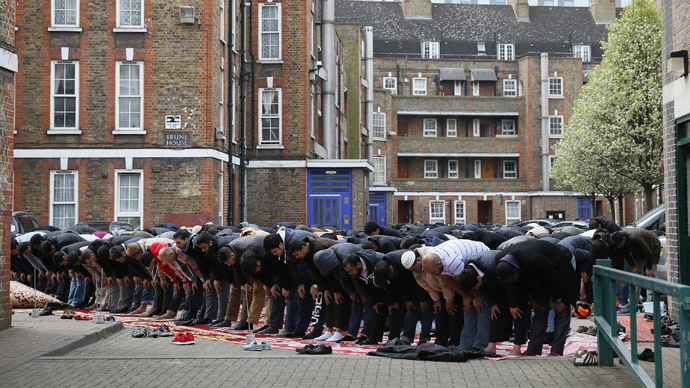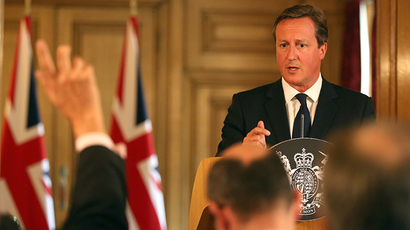'Father of Terrorism': Brit given prison sentence for posting extremist videos

A British Muslim calling himself the ‘Father of Terrorism’ has been jailed after posting hundreds of links relating to extremist activity online.
Khuram Iqbal, 21, from Cardiff was sentenced to more than three years in prison after allegedly posting 848 links to Islamist extremist videos and articles to six different Facebook pages, Wales online reports.
He told London’s Woolwich Crown Court that he went by the screen name ‘Abu Irhaab’, meaning ‘Father of Terrorism’ in Arabic.
Iqbal was also caught with nine copies of ‘Inspire’, the official Al-Qaeda magazine designed to recruit Muslims in the West to commit acts of terror and violence. The magazine is known for glorifying terrorism operations, and providing instructions on how to build dangerous weapons.
One article published in the magazine is titled ‘How to make a bomb in the kitchen of your mum’.
Iqbal was allegedly interested in joining Jihadi causes, and attempted to join militants in Kenya in 2011, according to prosecutor Roger Smart.
After Iqbal was caught by authorities and prevented from going to Kenya, he was enrolled in the governments’ anti-extremism program, PREVENT, designed to de-radicalize young Muslims at risk of joining terrorist organizations.

However, Iqbal continued to access extremist material during this time.
Smart told the court that Iqbal had also tried to join militants in August 2012, after he flew to Turkey with two friends. This is the same path a number of British Muslims have taken to join militant groups such as the ‘Islamic State’ (IS, formerly ISIS/ISIL), where they are granted access through the Turkish border into Syria.
“The overall view is that you are a young man in the grip of extremist influence. I have been told you are prepared to disengage and distance yourself from these views and activities” said Judge Kinch.
“Nevertheless these are very serious offences and in my judgment only a prison sentence can be justified for this case.”
Iqbal’s defense lawyers said that that Iqbal suffers from “from anxiety and low self-esteem.”
They added that Iqbal renounced his past opinions on extremism, and that he is against IS “and the atrocities that have been committed in their name.”
Police welcomed the courts’ verdict, and affirmed that they would continue taking a tough stance on British people associated with extremist organizations.
“Preventing and supporting is always preferable to seeing young people entering the criminal justice process, however there is no place in our communities for terrorism and those engaged in such activity can expect to be sent to prison” a South Wales Police spokesperson said.
The verdict comes as the government deliberates on how to deal with the rise of extremist activity among some British Muslims, who have left the UK to join ISIS. According to official estimates, the government believes that there are around 500 Brits currently fighting in the region.














